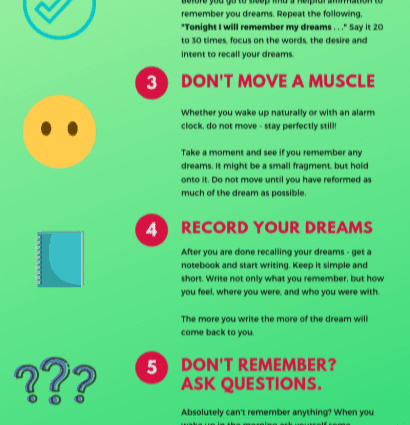Thanks to Freud, we know that every dream contains information about our hidden desires. Therefore, we feel annoyed when we fail to remember it. Why are dreams forgotten and is it possible to learn to remember them?
“My wife often tells me her dreams,” says 29-year-old Artem, “but I don’t remember mine at all. This is very disappointing: I would like to remember dreams in order to decipher them later. We do have reason to regret forgotten nighttime images, says Jungian psychotherapist Madina Slutskaya.
“Many facts are known when dreams gave powerful creative clues, and sometimes contained ready-made scientific discoveries or formalized ideas for works of art.” It cannot be said that by forgetting a dream, we lose something. But perhaps we are missing our chance to find something of value.
In some cases, we do not remember dreams because we really did not dream anything. “Illness, accident or injury can cause neurological changes that lead to the disappearance of dreams,” explains neurologist and sleep specialist Michel Billard. – Dreams can also disappear if REM sleep phases become too short and frequent. But such cases are extremely rare.”
Most of us dream every night. And only a few forget them immediately after waking up.
Lack of attention
From the point of view of neurologists, our forgetfulness is primarily a consequence of insufficient attention to the world of dreams. “If they are not interesting to us, then dreams simply elude us. The same thing happens with other manifestations of our mental activity,” says Michel Billard.
Conversely, if we begin to take an interest in our inner world, our memory improves. She is always focused on what touches us, seems important. Michel Billard found that women tend to be more attentive to their dreams than men and remember them better.
Sometimes it may seem to us that the dreams themselves do not deserve attention. “In two cases out of three, our dreams show banal events that happened to us during the day. In a dream, daytime activities and sensations continue, thus giving us the opportunity to sort them out, explains Michel Billard. “When the events are insignificant, we forget the dream without cluttering up our memory.”
Madina Slutskaya does not quite agree with this: “If it seems to us that we already know what the dream is talking about, then we are missing its meaning. Any interpretation of a dream is not final, it may change in the context of subsequent dreams and life events.
First Person
Lyudmila, 34 years old, pharmacist
“Every evening, when I lie down, I tell myself that today I will remember at least one dream. The next morning I write down everything that I remember when I wake up, not worrying about the coherence of the presentation. I single out individual scenes, note secondary images, observe the characters … And I draw parallels with what I experienced. Then I name by association the first thing that comes to mind and try to decipher the meaning of the dream. I like to keep such a diary: thanks to it, I discover aspects of my personality that I didn’t even know about before.”
Resistance
“Each of us has terrible, wild, uncontrollable desires, as evidenced by our dreams.” These words do not belong to Freud, as one might think, but to the ancient philosopher Plato, but they gained fame thanks to the creator of psychoanalysis. He also explained why memory is so selective. “Sigmund Freud considered dreams to be a manifestation of repressed desires, mostly of a sexual nature, that disturb us too much to be conscious,” explains Madina Slutskaya.
The dream wraps messages in bizarre images to protect against knowledge that could undermine our self-image. But sometimes this protection is not enough. “Consciousness is able to resist, rejecting incoming information, and then we forget our dream entirely,” says Madina Slutskaya. “And the good news is that a dream can repeat its message in different forms.”
The ambiguity of dream images allows us to read the meanings gradually and recognize only what we are ready to perceive now.
expert Tips
Madina Slutskaya, Jungian psychotherapist: “After waking up, do not get up immediately, allow yourself to lie down for a bit … Our dreams continue to live in this “dreamlike” state of consciousness. Do not make any special effort to remember the dream. Just pay close attention to the images that will come to you. Write them down. It is convenient if the notebook lies next to the bed so that it can be easily reached by simply reaching out. Turning to these records will allow you to see the beauty, wisdom and variety of unconscious images, motives and aspirations of your own soul.
Michel Billard, neurologist: “If you really want to remember your dream, then ask someone close to wake you up between three and four in the morning, when sleep is especially deep and the duration of dreams can reach 20 minutes. Your partner can also check to see if you are dreaming. To do this, look at your eyelids and fingertips: if they twitch slightly, then you are dreaming.










